How Legacy Companies Can Use Their Career Pages to Attract Early Career Talent
Recruiters at legacy companies have to compete with a constantly replenishing crop of shiny new companies in shiny new industries. For organizations that have been around for a while, it can be tough to appeal to early career talent, especially if they’ve never heard of your company or its products or services.
But you can do it. You can grab the attention of this highly educated, highly motivated generation of workers. Here’s how and here’s who’s doing it well.
Do your research
To cater to early career candidates, you should know what they’re looking for.
According to Gallup, Gen Z and young Millennial workers want:
An employer who cares about their wellbeing
Ethical leadership practices
A diverse and inclusive workplace
These are ESG—or environment, social, and governance—criteria. In other words, younger generations are looking for a people-first work philosophy.
Gallup’s list isn’t the final word on young worker tastes, but having researched and written about recruiting and hiring trends for years, I can tell you that it is pretty descriptive of job seeker trends.
Regarding benefits, early career workers want benefits that enable the lifestyle they want. Fringe benefits like free snacks, team outings, and a casual work environment are nice, but they don’t get people in the door, and they don’t make people stay. Young job seekers are far more concerned with things like remote work, flexible schedules, retirement accounts, and comprehensive healthcare plans.
But my advice is about career pages, not benefits, so I won’t tell you how to build a benefits package, but I will tell you that knowing what young workers want will help you communicate what you have to offer.
Show, don’t tell
In all things, show, don’t tell. Truly this could be the motto of employer brand marketing.
Now that you know what young workers want, square that with what you offer and show them how you satisfy their criteria.
If you prioritize employee wellbeing, show them how you do it. For example, by offering flexible work hours, unlimited paid time off, or mental health resources. Bosch does this on their culture and benefits page. (And pssst, see how they’re using that “lifestyle” language? It never hurts to be explicit.)
If you put corporate ethics and citizenship at the top of your list, talk about governance practices, third-party checks, certifications, vendor vetting, etc., like Ford does on their sustainability page.
If you prioritize diversity, inclusion, and equity, show them how you do it. Dupont does this well on their DE&I page, which includes a list of partnerships and alliances, ERGs, and career development programs for people in marginalized groups.
Carve out space to address their needs and concerns
Younger generations who have never heard of your organization (I once had an intern who had never heard of Xerox as a company, much less a verb) may have a hard time picturing themselves in your organization—even if you offer a thriving and propelling workplace.
Simply carving out a space to show them how you train and develop young talent can help them imagine growing their career with you.
Chemicals manufacturer Bristol Myers Squibb has dedicated a page of their site to early career employees.
Show them how they can build their career with you
Young workers want to know what your company can be a launching pad for their career, even if they don’t stick around for 20 years.
Bosch created a page dedicated to employee growth and development that includes brief but detailed information about how they set up their employees for successful careers.
Back your claims
If you say your internship program offers great career development resources, if you say your workplace is inclusive, if you say you value employee wellbeing, back those statements with 1) data and 2) employee endorsements.
Pepsico publishes workforce demographic parity goals and records their progress along the way. (Note: I wasn’t able to find this data through their careers page and had to go a-Googling for it. C’mon, Pepsi!)
Ford’s summer internship program page features casual, unscripted videos of current and former interns answering specific questions about their experience.
And lest you forget, you are still competing with the sheeny shiny Squares and Nikes of the world, so make sure your careers site is polished, modern, and up-to-date. These are digital natives, after all, so dress to impress.
Polish it all
And lest you forget, you are still competing with the sheeny shiny Squares and Nikes of the world, so make sure your careers site is polished, modern, and up-to-date. These are digital natives, after all, so dress to impress. You don’t want to get caught with your pants off. Unless you’re the CEO of AMC Theatres talking to short sellers, in which case you do you.
Emily McCrary-Ruiz-Esparza writes about workplace culture, DEI, and hiring. Her work has appeared in Fast Company, From Day One, and InHerSight, among others.
ABOUT UNCUBED STUDIOS
Launched in 2016, Uncubed Studios is a full-service creative agency with a client list representing the most influential employers on earth along with the high growth tech companies.
The team that brings the work of Uncubed Studios to life is made up of award-winning experts in cinematography, journalism, production, recruitment, employee engagement, employer branding and more.
Uncubed Studios is part of the Uncubed Group, which also includes Mediabistro, the leading talent & professional community in the media sector, and Finalist, the curated sourcing platform for early professional tech talent.
Interested in speaking with Uncubed Studios for a media opportunity? Contact studios@uncubed.com







